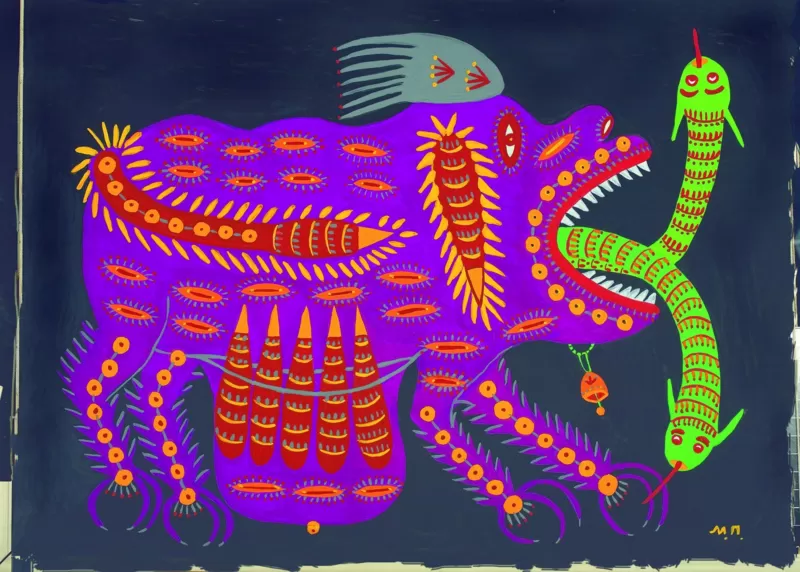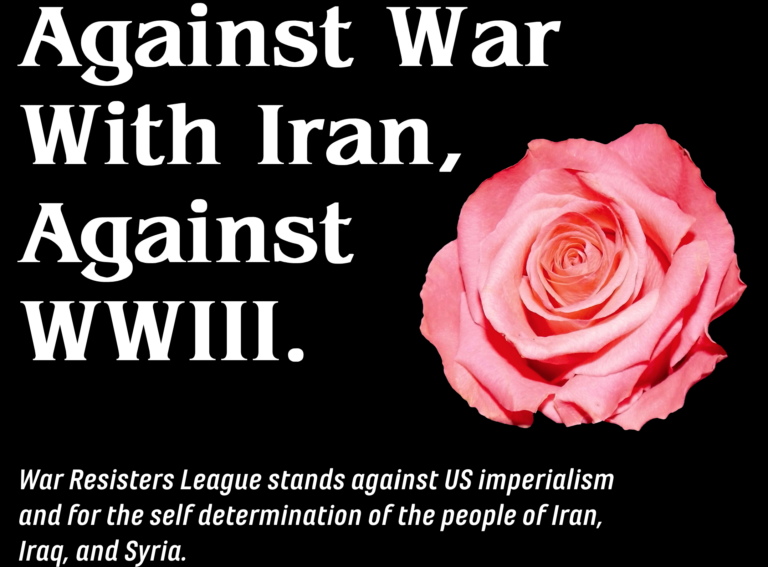WRL Statement on Ukraine
The War Resisters League was founded in the aftermath of a horrendous European war by those who resisted conscription and their supporters. They united around a powerful affirmation: war is a crime against humanity. Over the course of almost 100 years since that time, our commitment to this principle has been tested by many political struggles and military conflicts in different parts of the globe, yet we have continued to affirm our founding principles. Today, the eyes of the world are again fixed on war in Europe because of Russia’s devastating invasion of Ukraine, and we are challenged again to articulate what it means for people in the United States to resist war.
The situation in Ukraine is complex and people of goodwill see the conflict in different ways and advocate different solutions. Points of unity have been difficult to establish, even among long-time allies in the social justice and peace movements. As a historic pacifist organization, we appreciate the complexity of conflict. It is no longer possible to see war and violence in binary terms.
In recent decades, our deepening understanding of structural violence and solidarity with movements of liberation have informed our understanding of revolutionary nonviolence. At the same time, we reject militarism and military alliances among great powers as a source of stability in the global system. WRL has always opposed NATO and other military alliances. Together with our European partners in War Resisters’ International, we have protested NATO’s actions, opposed its expansion, and called for its dissolution.
We continue to believe that war is a crime against humanity. This guiding principle leads us to specific responses to the war in Ukraine.
Listen to the voices of resisters in Ukraine and Russia
Leaders of the Movement of Conscientious Objectors in Russia and the Ukrainian Pacifist Movement have called for peace with specific proposals that include an end to the fighting, withdrawal of Russian troops and support for those who refuse to fight, including conscientious objectors and deserters.
Support Nonviolent Acts of Resistance to the Invasion
The Ukrainian people have demonstrated tremendous courage and creativity in resistance to the invasion. They have reached out directly to Russian troops to humanize the enemy and appeal to their sense of morality. Creative actions, including changed street signs and even flooding a village, have impeded the movement of Russian troops. Civil resistance works. When people prepare, organize and coordinate their actions, nonviolent resistance is a powerful strategy. Nonviolence is often dismissed as ineffectual, and yet it has shown its power as a tactic for resistance in many difficult circumstances. We need to share these acts of courage to understand the full story of the resistance and because nonviolence in one location inspires activists around the world.
Acknowledge the Double Standards and the Interests Served
While the war in Ukraine has dominated media and public attention, dozens of wars are being fought around the world, mostly in Africa, Asia and the Middle East (including Yemen). The Russian invasion of Ukraine has received unparalleled attention for many reasons, including racism. The suffering of the Palestinian people, living under Israeli occupation for more than seventy years, is almost completely absent from press accounts in the United States. At the same time, Ukrainian refugees have received support that had been denied to refugees from other crises, notably Syria, Libya, Iraq and Afghanistan—including Haitians and Central Americans fleeing to the United States. The war has benefited weapon makers in the US and around the world. The Pentagon has sent more than $60 billion worth of arms to Ukraine and Congress has added $45 billion to next year’s military budget. Those dollars could be used to provide critical human needs, but they are consumed by the war machine. Meanwhile, US officials promote the war in support of a rules-based international system, they willfully overlook US actions that have violated international law. Norms for the nonviolent resolution of conflict should be applied equally or they risk becoming another expression of might makes right.
Recognize the Risks—and Advocate Demilitarization
War leads inevitably to many consequences, including destabilization, distrust, and residual violence that can last for decades. The trauma can last for generations. War involving nuclear powers risks a potential for escalation that defies the imagination of most people living today. The threat is real, and it grows as the war drags on. In the war fever that has gripped much of the west, there has been little critical consideration about de-escalation or what follows war. We have seen the very predictable dehumanization of the enemy with banning of Russian athletes and artists from international venues. People to people encounters, meaningful during the Cold War, are largely nonexistence even though the Russian people are not the enemy. The prejudices and animosity that war unleashes are difficult to undo. In addition, the disruption of food production in Ukraine creates very real threats to food security of many people, particularly those in the global south who are already vulnerable.
Conclusion
As an antimilitarist organization that has resisted war for a century, we affirm that our hope does not rely in the actions of nations which will always be self-interested. Our hope lies in the courageous experiments with nonviolence among people who resist violence and oppression. Our hope resides in recognizing that no person is our enemy, but war itself is the common enemy of all humanity.
To stop this war, we call for an end to the escalation, authentic peace talks, and a demilitarization of the region. There is no hope in military victory.
– War Resisters League, June 2022

Tanks in the Museum of The History of Ukraine in World War II (by thisisbossi)
Read more about war in Ukraine here
Share







